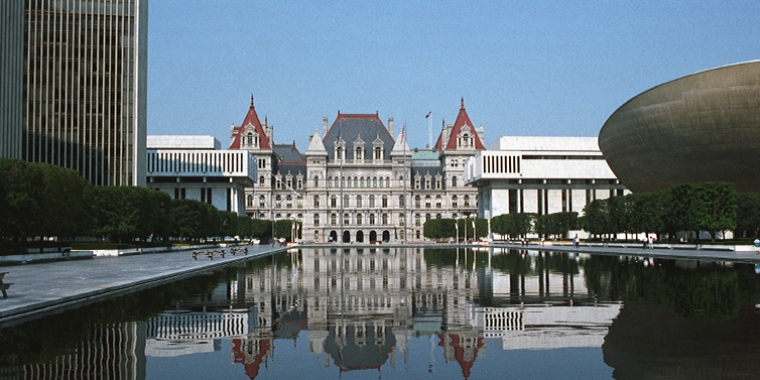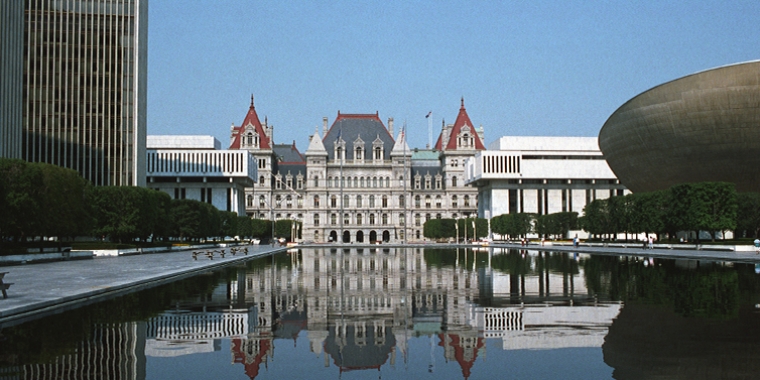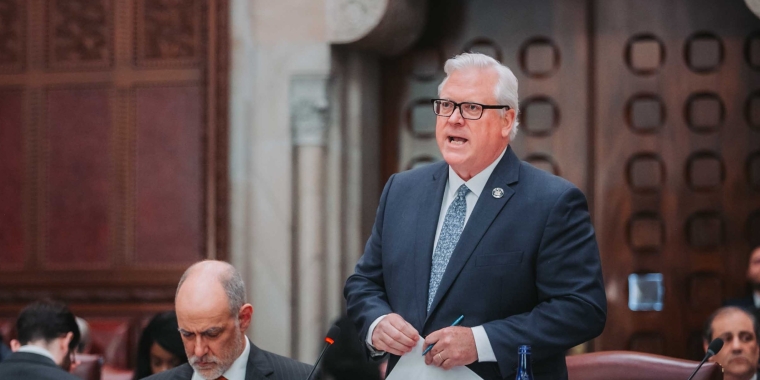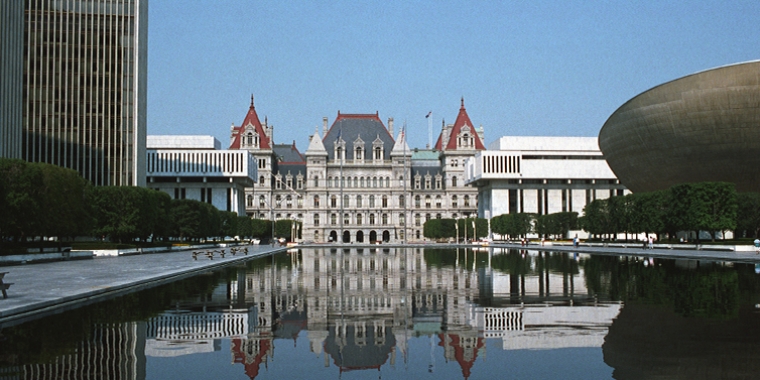
O’Mara says ‘Farmworkers Fair Labor Act’ puts family farms at risk: 'Good for Governor Cuomo's big city politics, bad for upstate New York's family farms'
July 17, 2019
-
ISSUE:
- agriculture economy

Elmira, N.Y., July 17—State Senator Tom O’Mara (R,C,I-Big Flats) is pointing to Governor Andrew Cuomo's bill-signing ceremony in a New York City newsroom earlier today, to formally enact a law with far-reaching implications for the state’s family farmers and rural upstate economies, as ongoing proof that the new law is largely motivated by extreme liberal, far-left politics.
The ceremony was held at the New York Daily News headquarters in Manhattan.
“Governor Cuomo stood behind a podium in a New York City newsroom this morning to polish his 'progressive,' far-left credentials by signing a law that has potentially devastating consequences for family farms and local upstate farm economies,” said O’Mara. “Governor Cuomo went to a big city newsroom, not an upstate farm, to enact this law. That speaks volumes about the true motivation behind this extreme liberal, far-left action, and its consequences. Good for Governor Cuomo’s big city politics, bad for upstate New York’s family farms.”
O’Mara and other opponents of the controversial legislation (S6578/A8419), known as the “Farmworkers Fair Labor Practices Act,” have warned throughout the past year that it will drive family farms out of business and have other profound repercussions throughout local farm economies.
O’Mara debated and voted against the measure when it was approved by the Senate on June 19. Two downstate New York legislators ("Two lawmakers from the New York State farming hotbed of Queens, New York City," O'Mara said) sponsor the measure, Senator Jessica Ramos (D-East Elmhurst), chair of the Senate Labor Committee, and Assemblywoman Catherine Nolan (D-Long Island City).
[O’Mara’s full debate remarks can be viewed HERE]
“It’s another bad move at the worst possible time when too many family farms across our region and statewide are already struggling to make ends meet and survive. This action has devastating implications for family farms and an entire agricultural industry that has long been the cornerstone of economies and cultures across the Southern Tier and Finger Lakes regions, and throughout upstate New York. It’s another extreme move by a radically progressive state government, under one-party control, that will cost jobs, devastate hard-working families, and further weaken the foundations of local upstate economies,” O’Mara said.
Earlier this year, in a letter to legislative leaders, O’Mara and Assemblyman Phil Palmesano (R,C,I-Corning) called for extensive statewide public hearings on the proposal. They wrote, in part, “The misguided and misrepresented Farmworkers Fair Labor Practices Act poses an extreme action at a time of already severe economic struggle for New York State farmers. Worse, the Act’s consequences would produce a nightmare of a ripple effect across local communities in every region of this state and profoundly diminish the future of high quality, local food production. In short (the legislation), far from implementing fair labor practices, would in reality spark an enormous loss of family farms and the thousands of livelihoods these farms support across the industry and throughout hundreds of local economies statewide.”
O’Mara and many the Act’s opponents, including the New York Farm Bureau and Unshackle Upstate, have argued that it will increase already exorbitant farm labor costs in New York State by nearly $300 million or close to 20%, resulting in an across-the-board drop in net farm income of 23% and driving many farmers out of business. For many specific agricultural sectors, including the dairy industry, and vegetable and fruit growers, the increased costs would be unsustainable. According to a 2016 economic analysis from Farm Credit East (www.farmcrediteast.com), an agricultural credit and financial organization, total farm labor costs in New York State were 63 percent of net cash farm income, compared to 36 percent nationally.
Mandatory overtime pay and other actions called for under the new law, including the creation of a three-member Farm Wage Board granted the authority to unilaterally change the law’s provisions, will greatly exacerbate the impact of farm labor costs on farm income at a time when the farm economy is already struggling.
Over the past five years, for example, New York State has lost 20 percent of its dairy farms.
Share this Article or Press Release
Newsroom
Go to Newsroom


